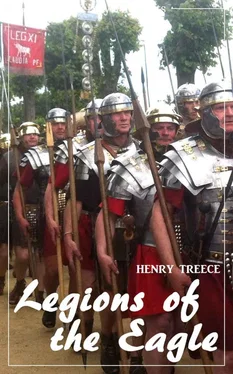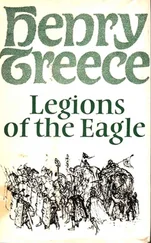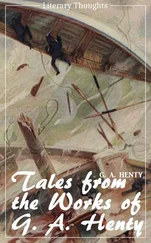There, a new sight met their eyes; two grooms were scrubbing down the war-chariot, cleaning it of its old caked mud, and burnishing the bronze decorations along the single shaft on which the archer stood when the vehicle went into battle. The sword-smith was bending over the wheels, a rough stone in his hand, sharpening the long scythe-like blades that projected from the axles on either side of the chariot.
He looked up as the boys approached, his tanned and wrinkled face smiling grimly. "Here's something you lads have never seen before," he said. "These two knives have not been sharpened in your time, I warrant!"
The boys stood back and watched him, stricken with awe. The two knives looked terribly sharp already, and yet the smith went on honing them, as though they were blunt bars of iron.
At last Gwydion said, "Is it the Romans, Dillus?"
The smith pursed his mouth and, shaking his head, said, "It's not my place to pass on rumours to young lads. I only know what I do know, and that's all. Your father told me to do this, and so I am doing it. Go and ask him, if you want to know!"
He grinned at the boys, for he knew that Gwydion would not dare to ask his father about anything as serious as this. Then he went on working and the two lads whistled Bel and strolled off into the fields, hoping to start a rabbit from the gorse bushes that fringed the farm.
Yet, though they whistled and sang in a carefree manner, both of them were thinking the same thing: Were the gods about to bring misfortune on the family of Gwydion? And was that because Math had killed the sacred hare? They hid this thought from each other, but it ran in their minds all the same, until at last they returned and went to their beds.
Gwydion saw the bright torch-light still burning in the hall as he pulled the hide coverlets over him and tried to settle down on his mattress of springy heather and fern-fronds. This worried him and he could not sleep, for the glow struck under the door of his cubicle. Moreover, he could hear the sound of armour being scrubbed and of a sword or a knife being rubbed rhythmically against a sharpening stone. He did not dare go into the hall to see what was happening, for his father was very strict about things like that. So he lay on his bed, too curious to sleep, and wishing that his father would say something from the other room that would give him an idea of what was going on; but all he heard at last was his father's voice, bidding his mother goodnight and telling her that a guard would be posted at the gate of the farm and that she was not to be afraid. Then he heard the hall door close, and his father calling to one of the grooms to bring him a horse and to see that the visitor's charger was well saddled.
Gwydion waited for a few minutes, then, acting on an impulse, he rose from his bed and tapped on the horse-hide partition that separated him from Math. There was no reply, and Gwydion did not dare risk shouting. He decided that Math must be fast asleep, and so decided that he must do what he wished to do alone.
He slipped on his tunic and trousers, and wrapped a wolf-skin about his shoulders, for the nights were chilly on the hills, and he did not want to catch a cold just at this moment of excitement.
Then, when all was quiet in the hall, Gwydion squeezed through the window-hole above his bed, ran the few yards to the stockade, and clambered up and over, falling lightly into the fern on the other side. Then, without turning to look back once, he set his course down the hill, in the direction his father's horse must have taken, towards the great royal city of Camulodunum.
He saw no one but an old shepherd as he raced over the undulating fields, and that old man was too frightened to do more than run into his little hut of clay and wattles, and pull the door to behind him. Then, running among the grazing sheep so silently that he hardly disturbed them, Gwydion came to the beaten earth pathway that led at last to the town gates.
As he approached the tall posterns, he saw in the moonlight that the sentries were on watch, holding their long spears at the ready. No doubt they would let him in, for they knew him quite well as his father was so important at the court; but this night they would surely escort him to his father, and that was just what Gwydion didn't want to happen. So he turned away from the town gates and skirted the wall for a few hundred yards, until he came to a place where the coping had fallen from the top and the wall was a little lower than at other parts. He knew this place well, and fumbled in the ditch until he found what he sought. It was a long pole, a pine sapling that the other boys hid there for those occasions when they were locked out of the town at night and must return home or get a thrashing.
Gwydion stepped back for twenty paces, then ran at the wall. Just before he reached the stones, he dug his pole deep into the soft earth and leaped with all his force. He sailed over the wall, leaving the sapling upright in the ground.
Gwydion had done this many times successfully, but this night his luck was out. Even as he was falling into the citadel he saw below him in the bright moonlight, a fat citizen, a butcher or a tanner—at least, a prosperous man, walking with a lady as plump as himself, and a small boy. It was unavoidable. Gwydion crashed down, almost on top of the man, and they both rolled over in the roadway, gasping with the impact. Almost at once the woman began to cry out that the enemy was entering the city, and the small boy raised his staff and began to beat Gwydion about the head, saying that he would be revenged for his poor father. The poor father lay so still for a while that Gwydion was afraid he had killed him. Then the man began to stir and groan, and Gwydion, wrapping the wolf-skin about his head so that he would not be recognised, ran into a side-turning, among the overhanging thatch roofs, and tried to get his breath back before going on. However, soon he heard a commotion and saw the lights of torches burning in the main street. He knew then that the woman's cries had aroused the guards, and so he could not wait any longer.
Keeping to the shadows of the low-built houses, he ran as fast as he could, and by the time he reached Caratacus's hall, the sounds of pursuit had faded away.
The hall was brightly lit and Gwydion could see that many lords must be there, for chariots and horses were waiting before the great doors, attended by grooms and men-at-arms. The boy moved round to the back of the tall wooden building, and, choosing his opportunity, ran into the dark shadow which it cast across the ground, and looked for a means of reaching a window that opened a few feet above his head.
As he stood there, hardly daring to breathe, he heard the sound of horns from inside the hall, and knew then that Caratacus the king was about to speak. He could not catch the words that were said, but he understood by their tone that the king was defiant, and he heard the great growl of applause that greeted them. Then he heard another voice, a voice which he knew only too well. He was too excited to think what he was doing, almost, but he felt that he must see inside the hall. He took a short run and leaped lightly up towards the window. His fingers grasped the ledge, and silently he pulled himself up until he could see into the room. There a sight met his eyes which he never forgot.
His father was striding up and down the long hall, his head thrown back and his arms waving as he spoke in a loud voice. Warriors on either side of him parted as he approached them, to give him free passage, and the king himself smiled down at him from his high chair set on a dais at the end of the room.
Gwydion suddenly felt his heart swell with pride for his father! What a soldier he looked, his long plaits swinging below the gold helmet, from the sides of which rose the fierce bull's horns; his arms blazing with light as the torches caught the many gold bracelets on his wrists; the gold gorget at his throat burning like a fire; his scarlet cloak thrown back over one shoulder to expose the burnished plates of his body armour! No wonder such a man was the favourite henchman of Caratacus!
Читать дальше












